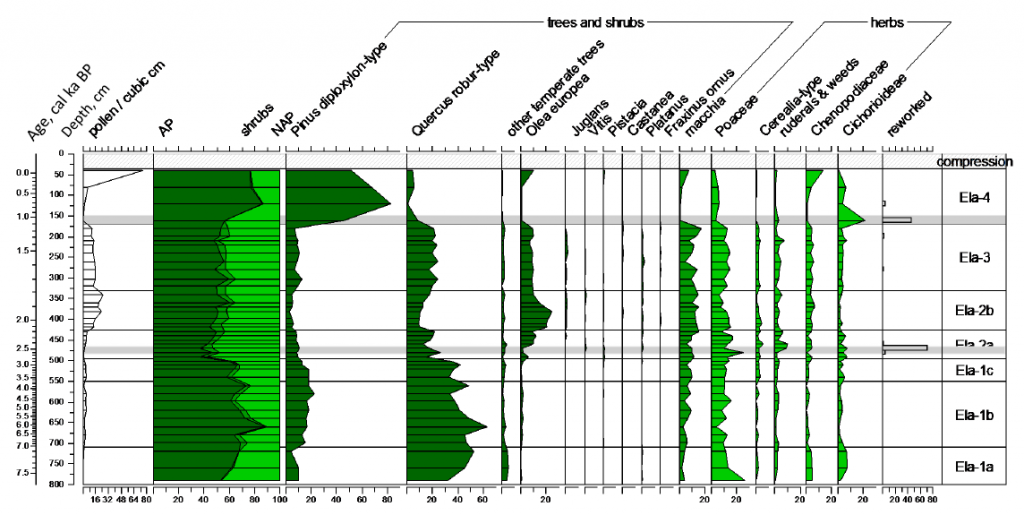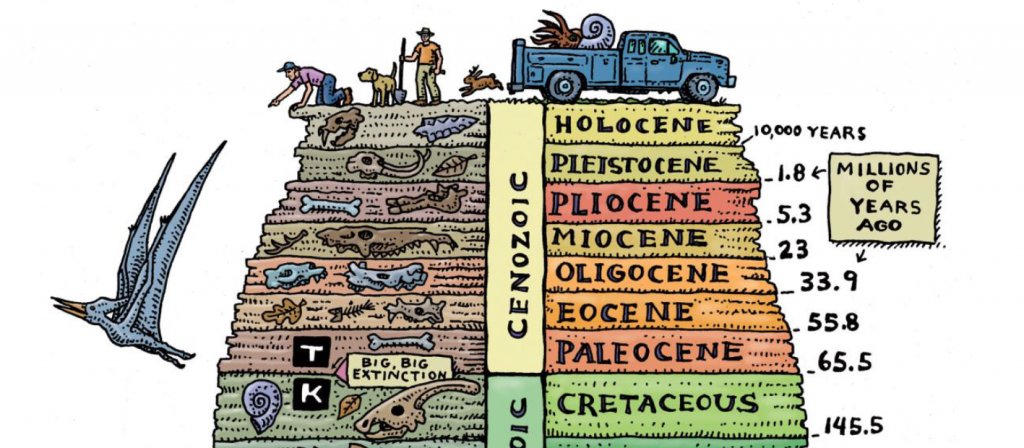Dr. Lyudmila Shumilovskikh and Dr. Thomas Giesecke, Department of Palynology and Climate Dynamics, Georg-August-Universität Göttingen (GAUG, Germany), University of Utrecht (Netherlands) have contributed to a research seminar “Environmental reconstructions based on palynological analysis” at Perm State University (PSU).
From 18 May to 4 June, a series of online meetings were held, revealing the role of the palynological method in the study of the natural environment of past eras. In addition, all participants had the opportunity to ask questions and evolve them into a further scientific discussion.
Palynology is known as the study of plant pollen, spores and certain microscopic plankton organisms, collectively termed as palynomorphs, in both living and fossil form. The earliest reported observations of pollen under a microscope are likely to have been in the 1640s by the English botanist Nehemiah Grew. Palynomorphs form a geological record of importance in determining the type of prehistoric life. Microfossils provide important clues to the prevailing climatic conditions of the time.
“The lectures have been quite involving and useful, demonstrating a deep overview of dating methods. I personally enjoyed the vegetation analysis of the Kungur forest-steppe, as it is local and familiar for us, yet given a fresh angle of research. Looking forward for new collaborations in that direction,”
comments Natalia Moskvina, Associate Professor of the Department of Plant Physiology and Soil Ecology, PSU.

“Attending the seminar granted me the opportunity to gain new knowledge in the field of paleoecology. Most of all, I liked the lecture on the history of vegetation of the Perm territory in the Holocene, since it is my native region of study. The missing parts of the seminar can be covered by watching the sessions’ video recordings,”
notes Elizaveta Mekhonoshyna, student of the Faculty of Geography, PSU.
“The seminar expands boundaries for the scientific knowledge, provides updates in methodology and promotes live communication, to mention the participation of international researchers. I am very much looking forward for it to be continued,”
shares Elena Korkina, head of the Department of Geography, Nizhnevartovsk State University (Нижневартовский государственный университет).
The seminar was attended by about three dozen participants, including students, graduate students, teachers and researchers from various higher institutions. Including Perm State University, St Peterburg State University, Moscow State University, Nizhnevartovsk State University, Tomsk State University, Institute of Geography RAS and international partners.
The seminar was organized by the Department of Biogeocenology and Nature Conservation and the Center for Educational and Scientific Exchanges, Perm State University (PSU).



